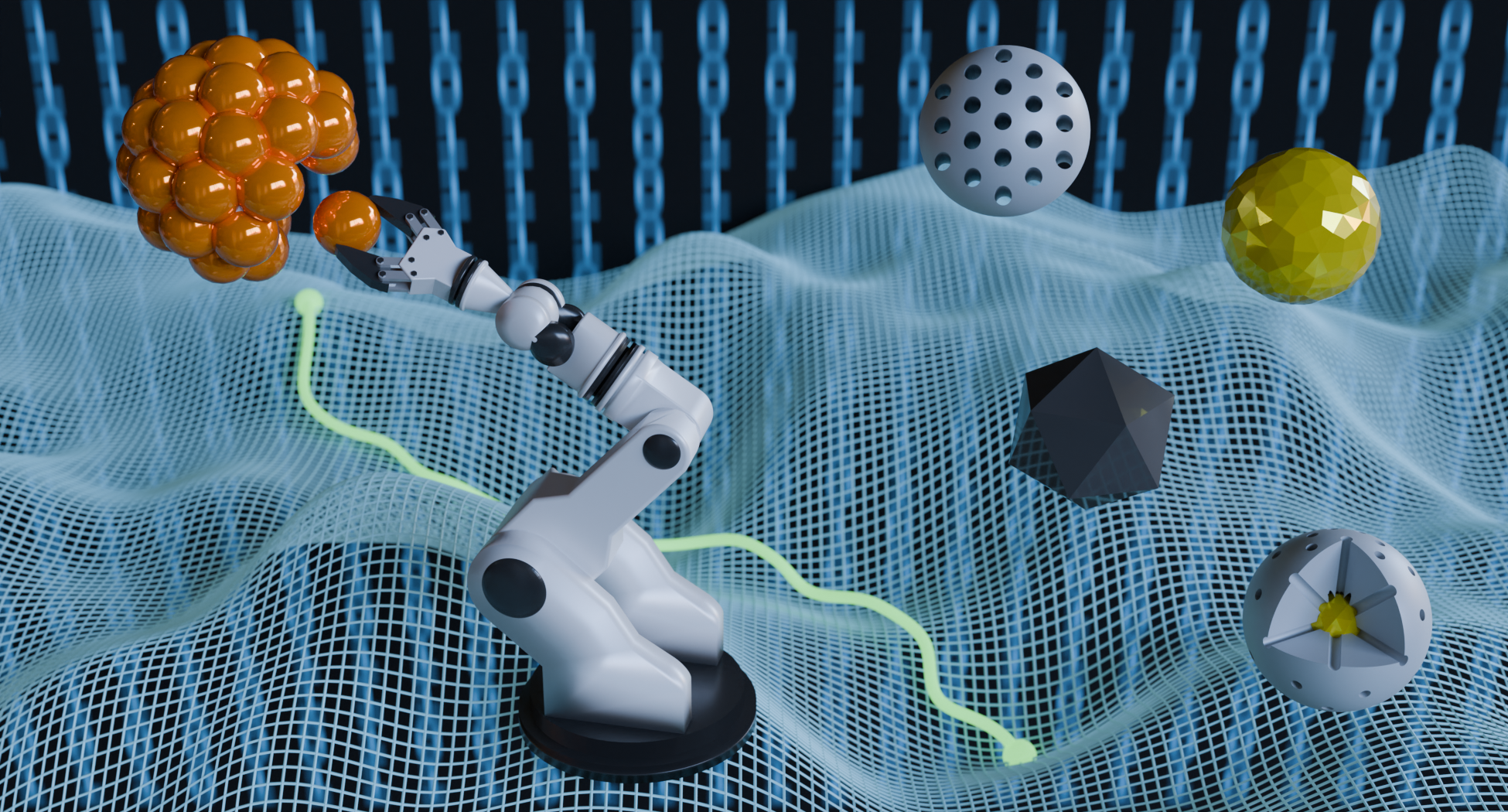
A Self-Driving Lab for Nano- and Advanced Materials Synthesis
Source: BAM
The recent emergence of self-driving laboratories (SDL) and material acceleration platforms (MAPs) demonstrates the ability of these systems to change the way chemistry and material syntheses will be performed in the future. Especially in conjunction with nano- and advanced materials which are generally recognized for their great potential in solving current material science challenges, such systems can make disrupting contributions. Here, we describe in detail MINERVA, an SDL specifically built and designed for the synthesis, purification, and in line characterization of nano- and advanced materials. By fully automating these three process steps for seven different materials from five representative, completely different classes of nano- and advanced materials (metal, metal oxide, silica, metal organic framework, and core–shell particles) that follow different reaction mechanisms, we demonstrate the great versatility and flexibility of the platform. We further study the reproducibility and particle size distributions of these seven representative materials in depth and show the excellent performance of the platform when synthesizing these material classes. The mean particle sizes as well as the particle size distributions all showed very low batch-to-batch variation, demonstrating the excellent reproducibility of these syntheses when they are automated on our platform. This means that tedious and laborious “standard syntheses” of simple and composite (core–shell) structures can readily and reliably be automated, ensuring high reproducibility and freeing up human resources for other, more creative and stimulating tasks. Furthermore, the very good monodispersity and high degree of reproducibility for gold and silica nanoparticles enable on-demand synthesis of these materials for their potential use as reference materials. Lastly, we discuss the design considerations as well as the hardware and software components that went into building the platform and make all of the components publicly available.
A Self-Driving Lab for Nano- and Advanced Materials Synthesis
Mohammad Zaki, Carsten Prinz, Bastian Ruehle
ACS Nano 2025, 19, 9, 9029–9041


